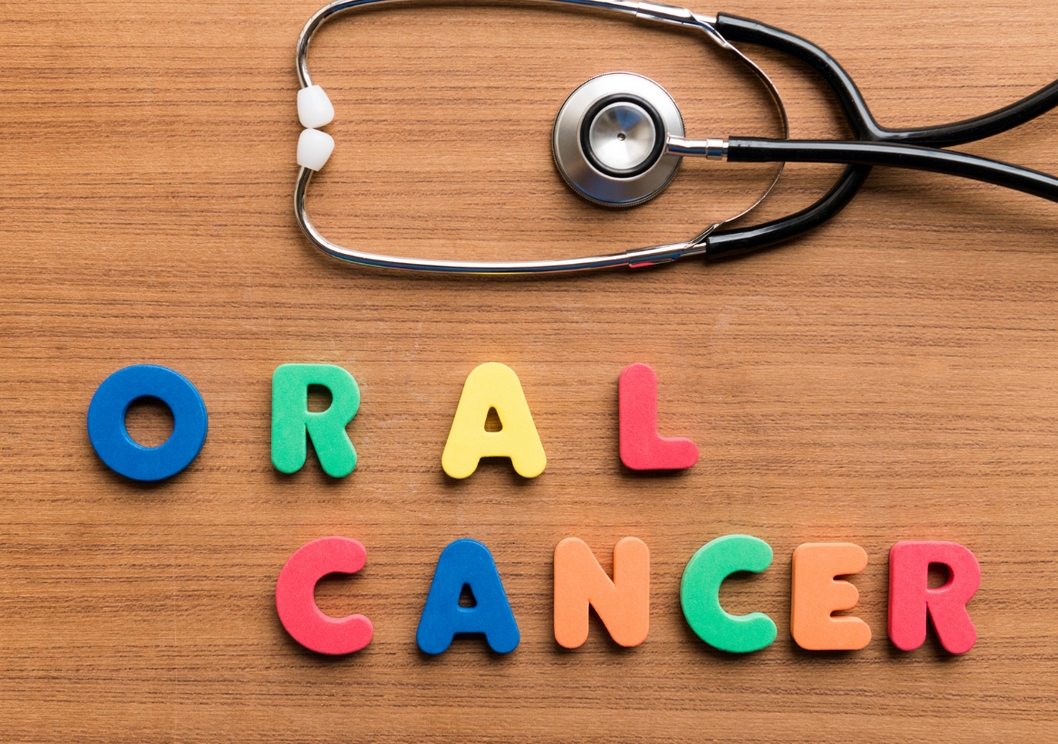
Oral cancer is any cancer affecting the throat and the mouth. It may appear on the lips, the inner lining of the cheeks, the floor of the mouth, sinuses, and the tongue. The National Cancer Institute Surveillance and Epidemiology and End Results Program estimates that there will be more than 54,000 new cases of oral cancer in 2024. This accounts for 2.8% of all new cancer cases.
The survival rate for oral cancer is highly dependent on the progression of cancer cells. Localised cells have an 80% survival rate, while the survival rate for those that spread to the lymph nodes goes down to 60%. The survival rate plunges to 40% if cancer has spread elsewhere.
Oral Cancer: Causes
Oral cancers occur when mutations happen to the DNA of cells in the mouth or lips. DNA contains instructions for what cells should do and how they should develop. They may tell the cell to continue growing and dividing, even when it should actually die. Eventually, these abnormal cells in the mouth will develop and form a tumor that can spread to other areas of your body such as the neck and head.
Most mouth cancers start in the flat, thin cells called squamous cells that line the lips and inside your mouth. Squamous cell carcinomas account for the majority of oral cancers.
The cause of these mutations in the squamous cells is still unknown. However, doctors have found risk factors that increase your risk of mouth cancer.
Oral Cancer: Risks
Certain risk factors increase your chances of developing oral cancer, and it can spread rapidly and lead to death if not treated immediately. Start being mindful and limit your exposure to the following if they apply to you:
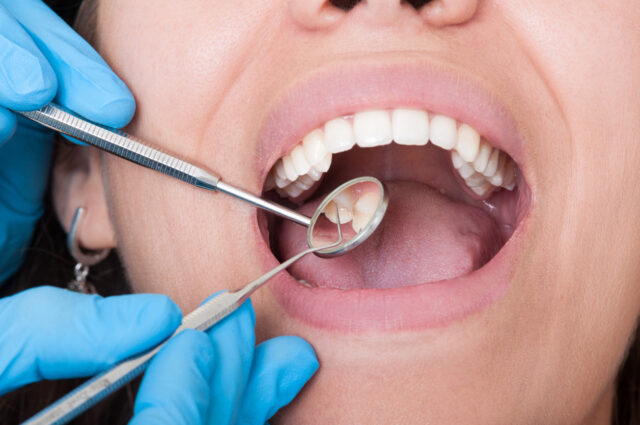
• Poor Dental Care
Cancer is more likely to develop in people with poor oral habits and lax attitudes towards dental visits.
• Sun Exposure
Exposure to ultraviolet radiation from sunlight can cause lip cancer.
• Tobacco Use
No matter how you smoke, tobacco products contain carcinogens. The National Centre for Biotechnology Information-US National Library of Medicine states that tobacco smoking increases the risk of developing oral squamous cell carcinoma, which accounts for approximately 90% of all oral cancers.
• Excessive Alcohol Consumption
The risk of developing oral carcinoma is also increased by excessive alcohol consumption.
• Human Papilloma Virus (HPV)
The chances of developing oropharyngeal carcinoma are higher if you have unprotected sex with someone with HPV.
• Age
Although it can occur at any age, most oral cancers develop in those over 40.
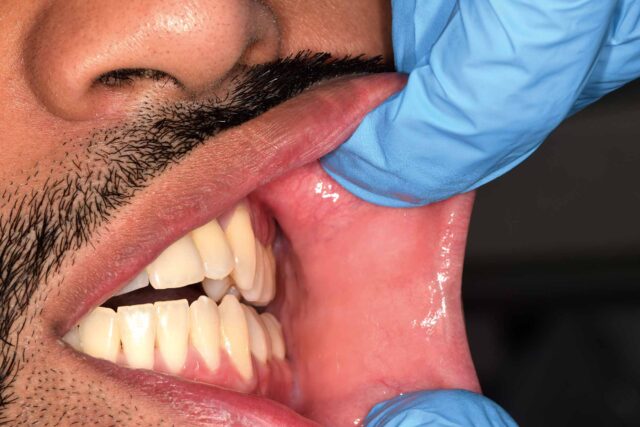
Oral Cancer: Symptoms
These are the signs you need to see your dentist immediately:
- Bleeding in your mouth
- Painful or difficulty swallowing
- Pain while speaking
- Loose teeth
- Ear pain
- Lumps, bumps, or patches on the lining of the mouth, lips, tongue, or gums
- Hoarseness or changes in voice
- Weight loss
- Difficulty wearing dentures
- White or reddish patches in the mouth
- Numbness in your mouth
- Sore lips
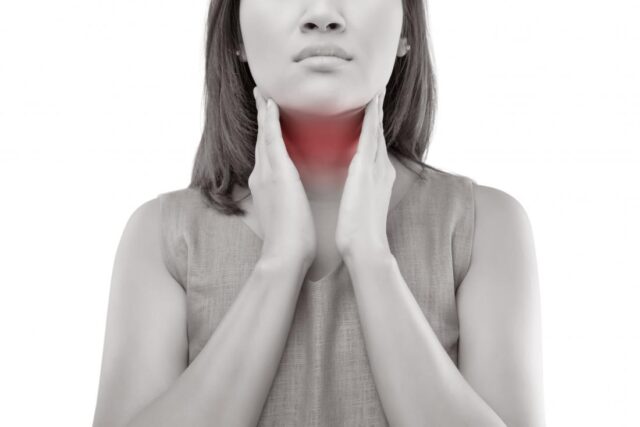
How to Prevent Oral Cancer
A few oral cancer risk factors may be difficult to prevent, but most are easily avoided by living a healthier lifestyle. According to Century Dental, you can also prevent oral cancer by doing the following:
• Stop smoking
According to data from the Mouth Cancer Foundation, the risk of developing oral cancer is lower in those who quit using tobacco products than 37% of those who continue to use tobacco products. Smoking never does anything good to the body; quitting will benefit your whole health and reduce the risk of most cancers.
• Practice protected sex
Getting vaccinated against HPV and using condoms during sex will protect you from STDs and reduce the risk of oral cancer.
• Eat fruits and vegetables
Healthy foods such as fruits and vegetables can boost your immune system and help fight the growth of cancer cells.
• Protect your lips from too much sun exposure
Keep your lips protected from the sun by staying under the shade whenever possible. You can also wear a wide-brimmed hat that can shade your entire face and include sunscreen lip products in your sun protection routine.
• Consume alcohol moderately
Long-term excessive alcohol consumption can irritate the cells in your mouth and make them more susceptible to mouth cancers. Not drinking is ideal, but if you choose to do so, do it in moderation. Adult men over 65 and women can have up to one drink a day; men aged 65 and under can enjoy up to two drinks per day.
• Visit your dentist
Regularly visiting your dentist helps also helps prevent or treat oral cancer. Visit your dentist at least twice a year if you’re high risk.
Early detection increases your chance of survival. Even if you don’t feel symptoms, your dentist can spot any abnormalities in your mouth using oral cancer risk assessment tools.
• Check your mouth regularly
Aside from dental visits, it’s best to check your mouth regularly-for instance, every time you brush in the morning and before bedtime. Open up wide in front of the mirror and see if you can spot anything out of the ordinary.
Some of the things you should watch out for include red or white spots or patches on your tongue, gums, the roof of your mouth, underneath the tongue, inside of the cheeks, or your lips. If you find these anywhere in your mouth, see your dentist as soon as possible. Also, if sores or ulcers have been bothering you for weeks, it’s best that you seek professional help.
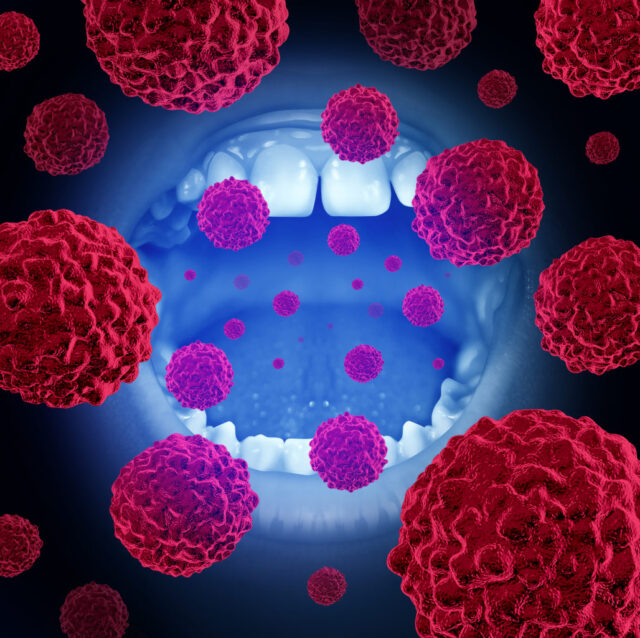
Key Takeaway
Oral cancers are caused by mutations in the cells of the mouth. Some risk factors that increase the risk of oral cancers include smoking, excessive alcohol use, and poor oral care. Aside from choosing a healthier lifestyle, some steps to prevent oral cancer include moderate alcohol consumption, regular visits to the dentist, stopping smoking, and using protection during sex.










